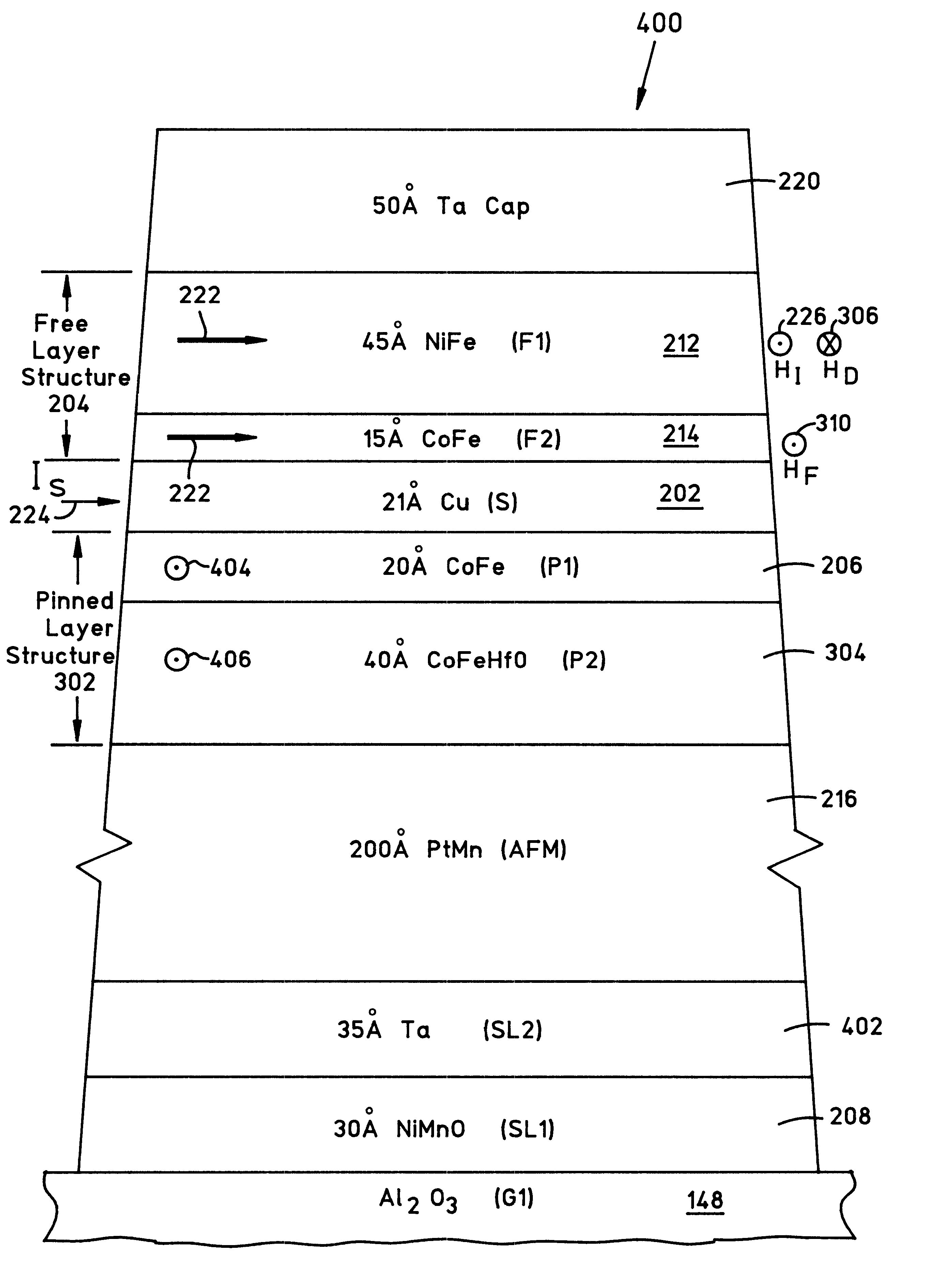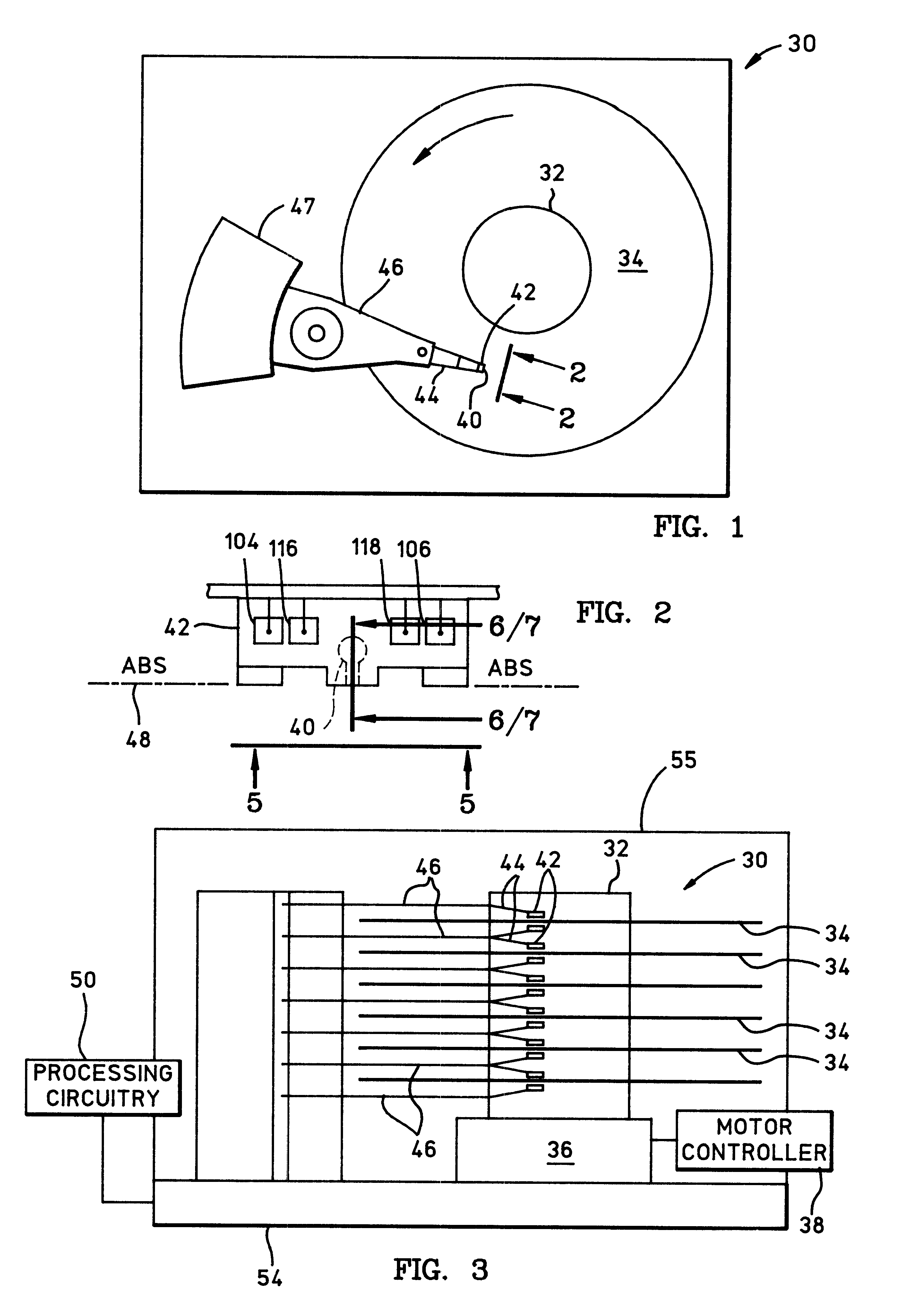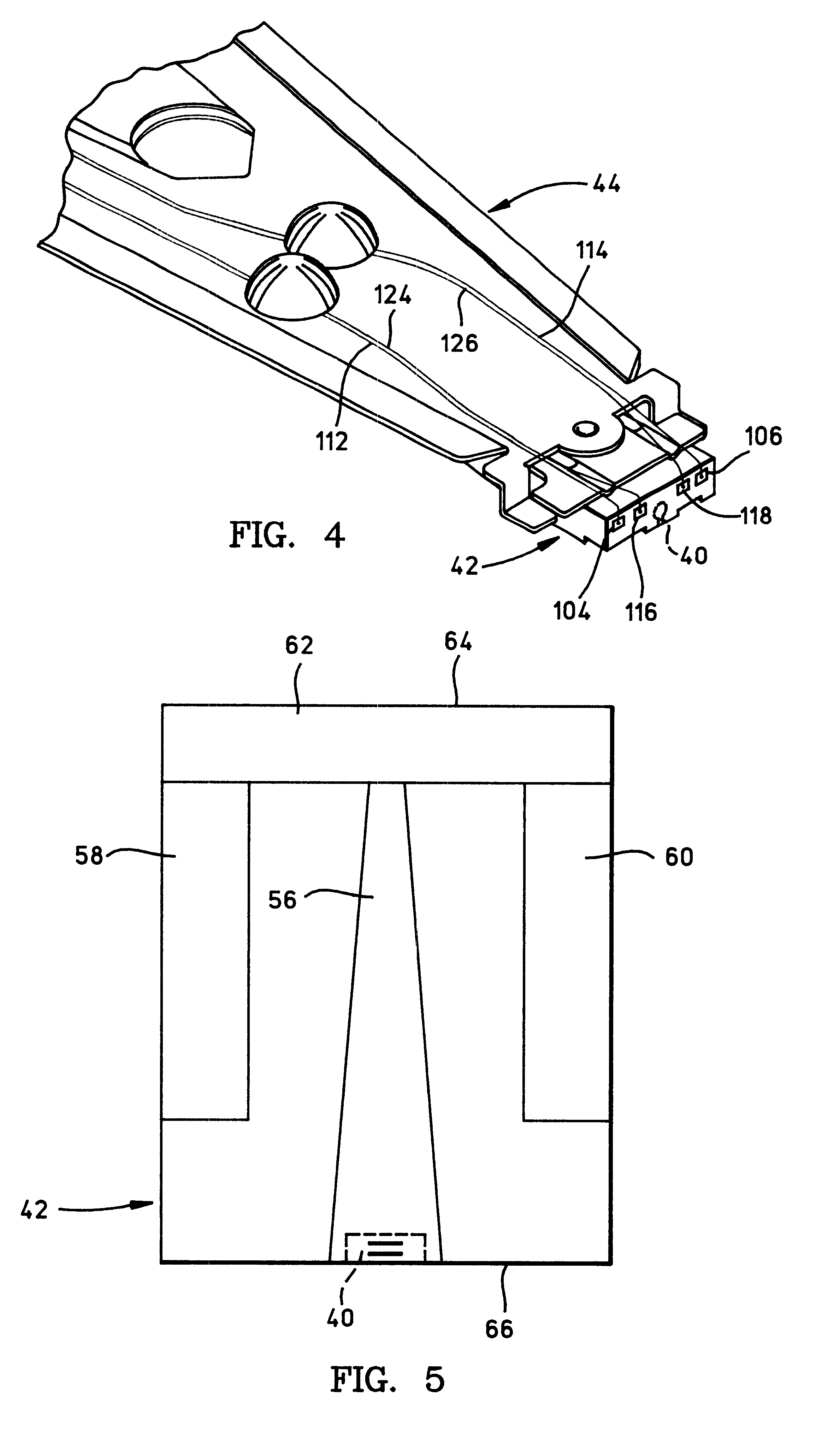Spin valve sensor with composite pinned layer structure for improving biasing of free layer structure with reduced sense current shunting
a sensor and composite technology, applied in the field of spin valve sensor with composite pinned layer structure, can solve the problems of difficult counterbalance, exacerbated problems, and more difficult to properly bias the free layer
- Summary
- Abstract
- Description
- Claims
- Application Information
AI Technical Summary
Benefits of technology
Problems solved by technology
Method used
Image
Examples
Embodiment Construction
FIG. 17 shows a top AP pinned spin valve sensor 700 which is the same as the spin valve sensor 600 in FIG. 16 except the layers 216, 604, 504, 508, 202, 214 and 212 are reversed in their order and a copper (Cu) second seed layer 702 is substituted for the second seed layer 402 in FIG. 16 because it promotes a better texture for the free layer structure 204. The magnitudes of the fields 608, 610 and 612 imposed on the free layer structure 204 are essentially the same as the same numbered fields in FIG. 16 except for a slight change in the sense current field 612 due to a substitution of the second seed layer 702. The top AP pinned spin valve sensor 700 in FIG. 17 will have substantially the same advantages as those mentioned for the spin valve sensor 600 in FIG. 16.
Discussion
It should be understood that the various thicknesses given for the various layers are exemplary and can be modified as desired in order to obtain sought for results. Suitable ranges of thicknesses for the layers ...
PUM
 Login to View More
Login to View More Abstract
Description
Claims
Application Information
 Login to View More
Login to View More - R&D
- Intellectual Property
- Life Sciences
- Materials
- Tech Scout
- Unparalleled Data Quality
- Higher Quality Content
- 60% Fewer Hallucinations
Browse by: Latest US Patents, China's latest patents, Technical Efficacy Thesaurus, Application Domain, Technology Topic, Popular Technical Reports.
© 2025 PatSnap. All rights reserved.Legal|Privacy policy|Modern Slavery Act Transparency Statement|Sitemap|About US| Contact US: help@patsnap.com



